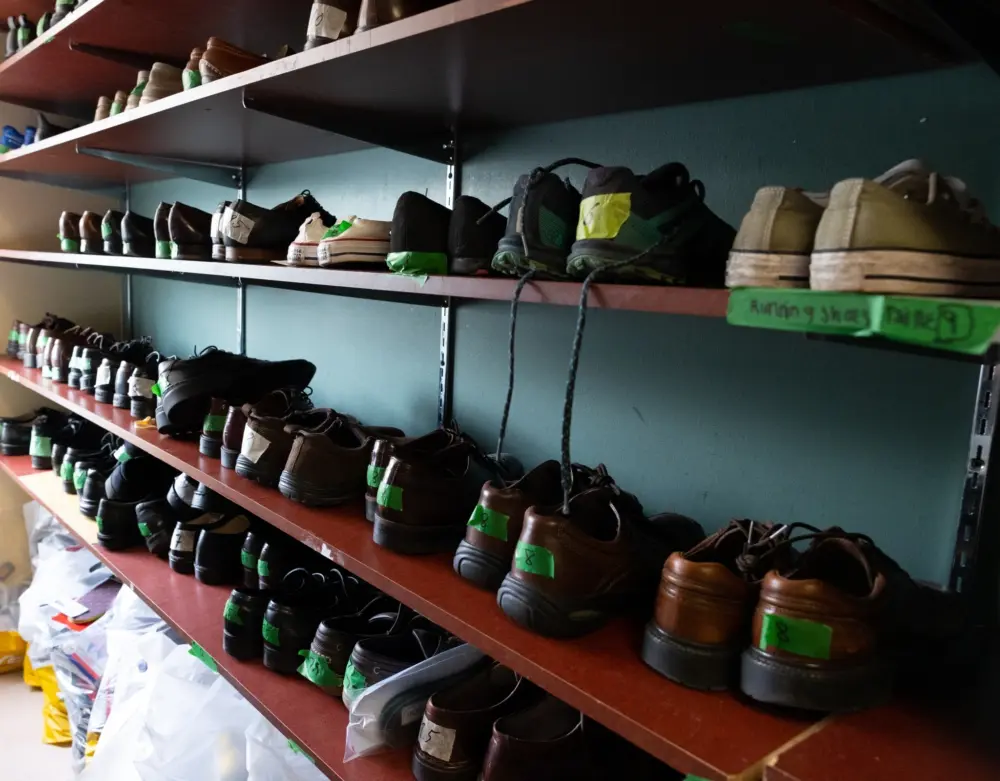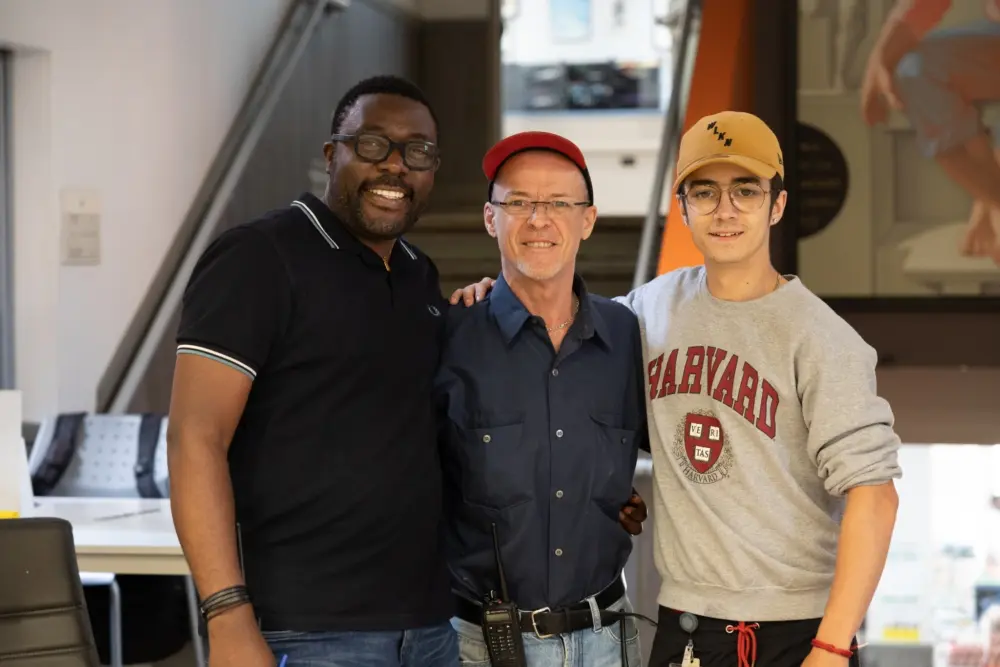AccueilBonneauintheSpotlight:ANecessaryandProgressiveOrganization
In addition to being daily Fabricants d’Émotions to the most underserved, the Accueil Bonneau workers on screen display their passion for their primary mission: helping those around them. When Accueil Bonneau opened, it contributed more than ever to mobilizing the message of welcoming and community that is so often associated with Old Montreal, the neighbourhood of People and History.
A Pillar of the Montreal Community
Serge Ebacher, past resident and current active collaborator with Accueil Bonneau, loves explaining that the expression “in a homeless situation” refers to so many different realities. He deplores that people often see it as a negative thing. Being in a homeless situation doesn’t necessarily mean living in the street, like in Serge’s case, but rather encompasses uncertainty in access to food, lodging, or even social access. Furthermore, the Executive Director who arrived just before the pandemic, Fiona Crossling indicates that 50% of people who come for food are not homeless. Accueil Bonneau sits precisely in the intersection of assisting those in the street or at risk of becoming homeless, and mentoring them as long as necessary.
A phrase of just a few words touched Serge when he finally decided to push open their doors. These words gave him the sincere feeling that they were extending an honest hand, and were the determining factor in him rebuilding his life: “Yes, we can help you.” With the help of 300 volunteers and employees, people living through a difficult period can come here for the help they need. Many people know Accueil Bonneau as a cafeteria to eat at and a roof to sleep under, but the Old Montreal organization’s mission statement goes well beyond these base functions. Accueil Bonneau responds to the essential needs one would expect, like feeding, bathing, recovery, and lodgings. But above all, the thing that the volunteer workers give back to the people that come here is their dignity. This is the role that multi-service centre clinic coordinator Mathieu Lefebvre and many other intervention agents play in order to allow accommodation for those who show up and attention each one’s particular needs.
A storied history, with the lasting desire to help those in the present
The history of Accueil Bonneau goes back a century and a half, and has always had the goal of taking in and working with people in need. The organization was founded in Montreal in 1877 by Joseph Vincent alongside the Charity Sisters of Montreal congregation, called the “Sœurs Grises”, the Saint-Vincent de Paul Society, and the Sulpicians. The social situation called for a transformation over the course of years to respond to the new needs in mental health and the ravages of simultaneous addictions. To this end, the Saint-Vincent de Paul Society and the Sœurs Grises chose to specifically offer services to persons in situations of itinerance.
Sister Nicole Fournier, vice president of the administrative board and general director of Accueil Bonneau from 1985 to 2006, expressed conveying these values, knowing full-well that the establishment could have been shuttered due to the myriad challenges they faced. “I’m so glad it could continue, and I could see that people believed in it. These people were here because of the same values we shared: benevolence, accommodation, allowing a person to find their feet again, to accompany them, and coach them.”
Taking on challenges in the face of adversity
Speaking of challenges, Daphné Mailloux-Rousseau, director of the Accueil Bonneau Foundation, has experienced her fair share. “The fight against homelessness means facing up against many of the most complex problems, often at the same time, day after day, seven days a week, for the past 150 years.”
While the organization has been entrenched in the city for nearly a century and a half, the question of its continuous workforce still remains a conundrum: nearly 200 volunteers and 100 employees participate in its smooth operation in several divisions spread across three locations – soon to be four! It’s clear that with the shortage of workers affecting Quebec and itinerant services, Daphné and her team have been able to stay competitive by offering a fulfilling professional environment filled with humanity.
The housing crisis also poses a two-fold challenge for these teams. On the organizational level, Accueil Bonneau must ensure continual management of the premises they offer to its users. At a more cyclical level, tensions are also exacerbated by the heightened levels of homelessness and the growing fragility of the situation the at-risk population finds itself in. And yet Accueil Bonneau still manages to maintain their vision and long-term goals all while concentrating their efforts on on the short-term and staying conscious of and connected to the realities of the field, like the true tour de force that they are.
Accueil Bonneau accepts people from all walks of life who put their trust in them in the hopes of gaining some sense of stability in their life, and for Daphné, “that’s the heart of Quebec’s social fabric.” That’s the reason this organization is so necessary in Old Montreal’s business collective. Even if issues change and evolve, contact between neighbours must stay intact in order to perpetuate a good social cohabitation and help adequately fulfill everyone’s needs.
As a supplement to this article, watch the special Fabricants d’Émotions video clip dedicated to Accueil Bonneau. This running series, created and produced by the Old Montreal SDC, aims to highlight exceptional people who contribute in their own special way to the historic district’s business collective.




